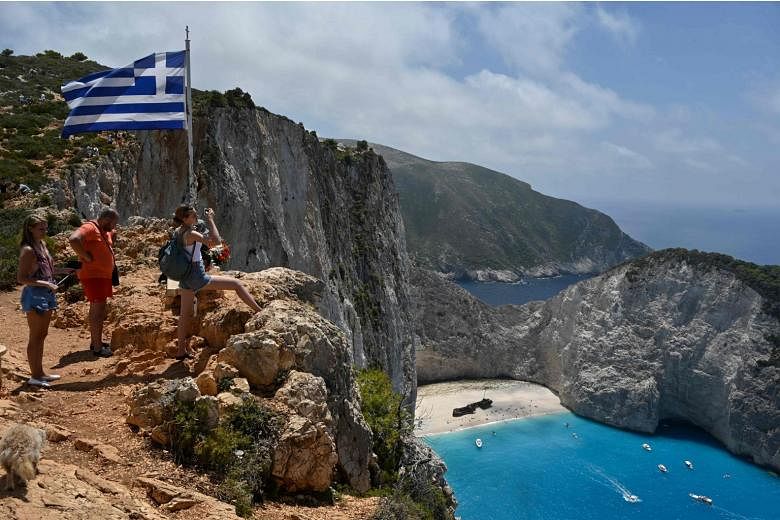The Covid-19 pandemic has not curbed the desire to travel. Rather, travel is taking on new forms as the world begins to adapt.
In the latest instalment of the askST@NLB series, The Straits Times Travel Editor Lee Siew Hua and Paul Whiteway, Asia-Pacific senior director at global online travel company Skyscanner, discussed the future of travel and the "delicate dance of recovery" for the industry.
They noted that, encouragingly, there has been an uptick in destination searches, as well as increasing occupancy rates as hotels begin to reopen.
Of late, "travel bubbles" have also emerged - these are government-proposed arrangements to ease disruption to travellers and commuters. One such travel bubble has been the Trans-Tasman bubble between Australia and New Zealand.
Beyond these encouraging signs of recovery for the travel industry, Ms Lee and Mr Whiteway touched on the changing habits of travellers as the world begins to emerge from lockdown.
For one thing, hotels and airlines committed to high hygiene standards and practices are preferred. Travellers are also choosing hotels with flexible cancellation and room-changing policies. These considerations come ahead of historical considerations such as price and location.
Ms Lee and Mr Whiteway also talked about the precautions and innovations that have arisen to cater to post-pandemic travelling. For example, the airport experience, including Changi Airport's Terminal 3, will be almost entirely contactless, from check-in to boarding.
In addition, Ms Lee shared her experience with the growing sector of virtual tours, including hunting for flowers in the gardens of the Kyoto Imperial Palace and learning to make Russian-style pancakes.
The two also answered questions from readers, including the possibility of their travel plans, and the prices of airfare and hotel rooms.
The askST@NLB series is a collaboration between ST and the National Library Board. Typically hosted monthly by correspondents at the Central Public Library, the series, suspended in February due to the onset of the coronavirus, went digital from May 22 in the form of free fortnightly podcasts.
Previous podcasts delved into life in China post-virus, the job market for young graduates post-Covid-19 and working life in pandemic and post-pandemic Singapore.
A podcast earlier this month examined the new normal for eateries as Singapore emerged from phase two.
• Listen to this podcast at str.sg/JsyV.
• The podcasts are available on platforms including Spotify, Apple Podcasts and Google Podcasts as well as on the ST Facebook page, and on SPH Radio's Money FM89.3.
• NLB has provided additional content online via ProQuest Central (eresources.nlb.gov.sg/Main/browse/resource/1111) for those keen to explore the topic further. They include "WTTC Lays Out Guidelines For A Safe And Seamless Travel In The 'New Normal'" in the June 29 edition of Business World, as well as "Envisioning The Future: Travel And Hospitality In The Wake Of Coronavirus" in the April 17 edition.

